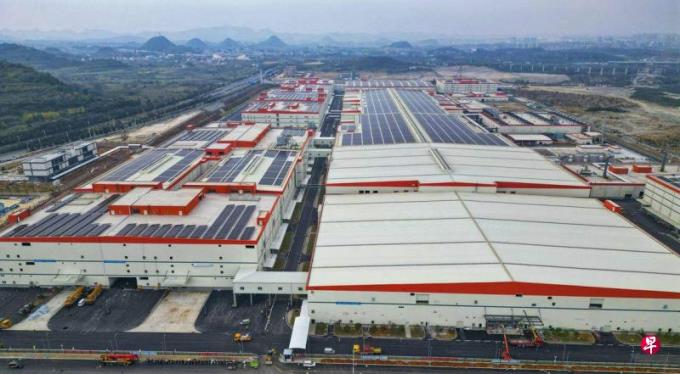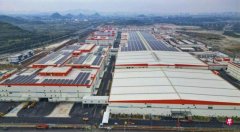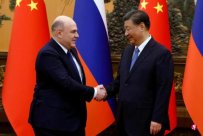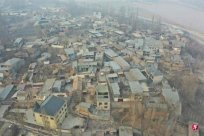
Earlier this year, Volkswagen in Germany sent nearly 300 employees to Chinese power battery company Guoxuan Hi -Tech. From the basic battery chemical molecular formula, how to assemble battery packs, and learn battery manufacturing step by step.
Since Volkswagen has invested in Guoxuan Hi -Tech in 2021 and has become the largest shareholder of this company, Volkswagen has sent people many times to Guoxuan Hi -Tech to learn from the scriptures.
A public in the United Morning Post, an engineer who has worked in Guoxuan Hi -Tech for nearly 10 years, and has a hundred years of car manufacturing experience. It also needs to learn from China's battery factories.
According to the data released by the market survey agency SNE Research, in the first three quarters of this year, companies with global power battery vehicles were ranked in the top ten: Ningde Times, BYD, LG New Energy, Panasonic, SK ON, China Innovation Airlines, Samsung SDI, Guoxuan Hi -Tech, Yimei Lithium, Xinwangda.
Except for LG's new energy, Panasonic, SK ON and Samsung SDI, the other six are Chinese companies, which account for 62.9%of the global lithium battery market.It has reached 52.6%.
Yu Hong, a senior researcher at the East Asia Research Institute of Singapore, said in an interview with Lianhe Zaobao that China's power batteries have the accumulated advantages of technology, market size and industrial chain, and it is difficult for other countries to catch up in a short time.
Take off under policy thrust
The battery accounts for 40%of the cost of electric vehicles. China's leading advantage in the power battery industry is directly related to the government's promotion of new energy vehicles.
Since 2009, the Chinese government has vigorously supported new energy vehicles, not only directly subsidizing new energy vehicle manufacturers, reducing purchase tax, but also on the front line of purchase and banks and provincial capital cities. New energy vehicles are exceptions.
China's new energy vehicles have grown rapidly, with sales in 2015 reaching 330,000 units. For the first time, it has become the world's largest new energy vehicle market, which directly drives the demand for batteries.
The Chinese government once again uses the policy advantage to implement the "white list" system for power batteries. New energy vehicles can only obtain subsidies by using the government's "white list" battery.This four -year -old policy is equivalent to avoiding the direct competition between Chinese battery companies and Japanese and Korean giants, so that Chinese trams and batteries are on the way to grow together.
Yu Hong pointed out that the support of the Chinese government is not only manifested in policies and subsidies.
He said that the battery industry is polluted. Only in China, there are government tolerance and support can it develop; if in Europe, it will encounter environmental groups and strict environmental assessment processes.
supply chain and cost advantage
Yu Hong also emphasized that China's market size and mature supply chain play a key role in the development of the new energy industry after the subsidy exit."In large -scale production and application, new energy products have completed technical upgrades and cost declines."
Xu Guohong, general manager of Guoxuan Hi -Tech Investor Relations Department, also said in an interview: "In the Yangtze River Delta, half an hour after driving, you can find suppliers in various links such as positive and negative pole materials, diaphragms, and packaging that the battery needs.There are not one or two in a subdivided field, but many. "
The concentration of supply chain brings cost advantages.According to Bloomberg, the price of battery produced in China is $ 127 (S $ 17.027 billion) per kilowatt hours, while the average price of batteries in the United States and Europe is 24%and 33%higher.This means that the use of batteries made in China can greatly reduce the cost of the entire vehicle.
Market research institution Jato Dynamics statistics show that the average price of an electric vehicle in China is about 320,000 euros (S $ 47,363), and the average European price is 56,000 euros (S $ 82,885).
Bill Russo, former president of Chrysler China, told the Financial Times that the "errors" of other countries in batteries are prioritizing performance rather than prices, but Chinese battery companies give priority to consumers' burden."By reducing costs, China won."
Power battery technology routes are not determined
However, in the face of the leading position of China's power battery, overseas manufacturers did not stop chasing.
Yu Hong said that in terms of supply chain, cost and market size, it is difficult to catch up with China, but it can achieve curve overtaking through the development of different technical routes.
At present, power batteries can be divided into two technical routes of high energy and cost performance.The mainstream of China is the lithium iron phosphate battery with higher cost performance, but the battery life is up to 500 kilometers.The European electric vehicle industry tends to use a higher -cost nickel -cobalt lithium manganate battery, which can reach 700 kilometers.However, this battery requires nickel and cobalt, and China ’s external dependence on these two metals is more than 80 %.
The R & D director of a power battery startup told United Morning Post that in addition to the scarcity of materials, Chinese battery companies are not enthusiastic about developing high -end batteries., Reduce Chinese consumers to the requirements of endurance.
He pointed out that consumers prefer long battery batteries in Europe and America, where the charging infrastructure is not yet mature, and high -end solid -state batteries and hydrogen fuel cells developed by Japanese and Korean manufacturers are likely to become the direction of the next generation of batteries."After their technical maturity and cost are reduced, Chinese products will easily lose their advantages."
The above -mentioned R & D director believes that the competitiveness of the Chinese market, the energy of corporate energy by the price war, cannot calm down to do technical research and development, and it is easy to miss the adjustment window of the technical route.He also said that on the cost -effective route, China has no high -tech barriers that other companies cannot break through.
Scholars: Europe and the United States inhibit power battery expansion
In the perspective of scholars, China's economic growth has slowed down, coupled with the overcapacity of the new energy industry, consumers' next car changing cycle has not yet arrived, and China's batteries and trams will need more international markets.
But in the context of fierce geopolitical competition, the export pressure of Chinese batteries will increase.In the long run, China is difficult to form an irreplaceable strategic advantage on power batteries.
Subodh Mhaisalkar, executive director of the Energy Research Institute of Nanyang University of Technology, said in an interview that countries are inhibiting the momentum of Chinese power batteries."With trade restrictions, tariffs, and selective subsidy policies, they support local enterprises and make Chinese battery vendors lose the price advantage."
He said that China's battery has a leading 5 to 10 years, but international manufacturers have rich experience. In addition, governments in various countries have fought for more time for local companies, at least in their national markets, it is not difficult to get rid of Chinese suppliers.




